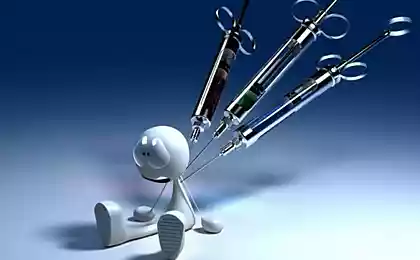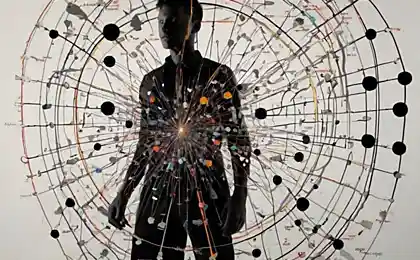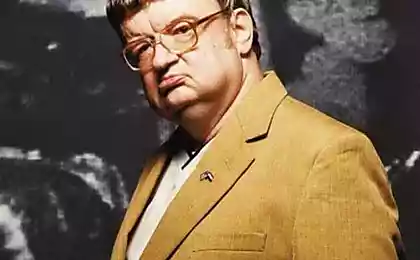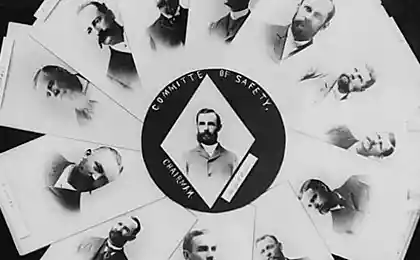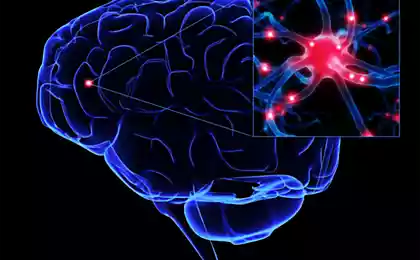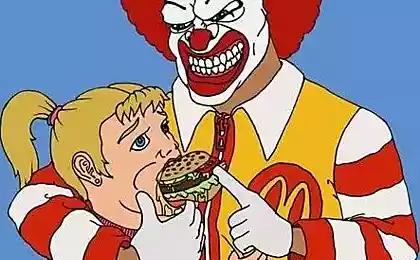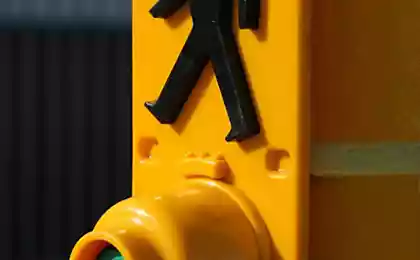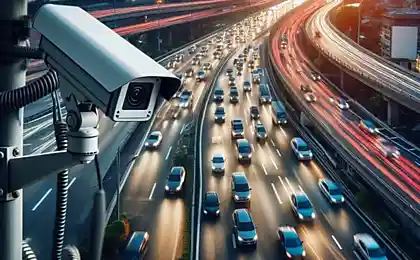626
Gilles Deleuze: Society of control
1. Historical perspective
Foucault places the origin of the disciplinary societies in the eighteenth and nineteenth centuries. They reached their heyday in the twenties. They began to organize a giant "spaces of confinement".
The individual is now only continuously flowing from one space to another conclusion, each of which had its own law: first law of the family, then school ("you're not at home, in the family"), then the factory, from time to time the hospital, maybe prison, the predominant and most finished form of imprisonment.
It is the prison served the rest of the "spaces of confinement" the basic model: when workers at the plant, the heroine of "Europe 51" Rossellini exclaimed: "it seems to Me that I'm watching the prisoners."
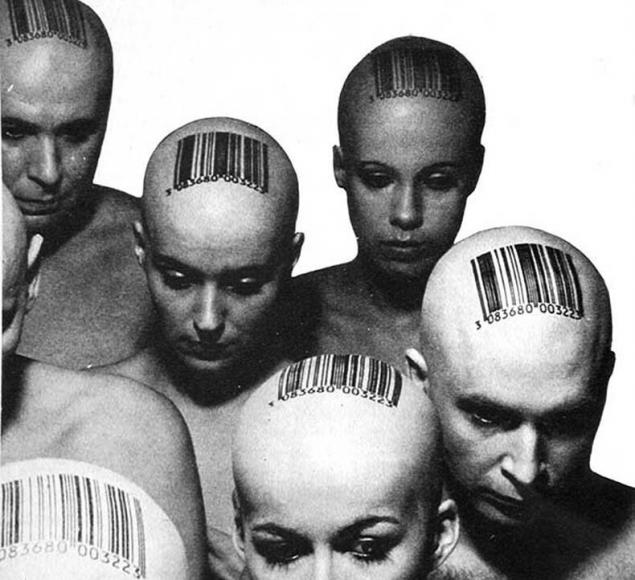
Foucault perfectly analyzed the ideal project of these "spaces of confinement", especially visible on the plants; its mission is to focus, set in space, order, time, place productive force in the space-time continuum so that the effect exceeded the cumulative result of all of the components taken separately.
But Foucault recognized the interim nature of this model. The disciplinary society was replaced by a powerful society, the purpose and meaning which was very different (they are focused on the collection of taxes, not to organize production, to rule on death rather than to administer life, etc.).
The transition between these two types of societies was stretched, and only during the time of Napoleon has undergone extensive and complete establishment of the disciplinary society. But the disciplinary society, in turn, has entered a stage of crisis, are gradually yielding place to the new forces, who are particularly evolved and intensified after the Second world war. Now we have ceased to be the disciplinary society, we are no longer so.
Everywhere we fix the crisis in the spaces of the conclusion of a different type — the crisis of the penitentiary system, the crisis in medicine, a crisis of production, the crisis of school and family. Family exposed to the same crisis as all other "internal" space, organized on the model of "spaces of confinement".
Administration of different levels constantly proclaimed the need for reform: educational reform, industrial, medical, penitentiary and military. But everyone already knows that all these institutions are doomed, no matter how long it lasted for their agony. We are talking only about the organization of waste rituals and classes of people hitherto, until the new forces are knocking at the door, will not be finally mastered. Disciplinary society are doomed to be replaced by societies of control. "Control" is the word that Burroughs stands new monster, and Foucault sees this as our near future.
Paul Virilio constantly analyzes ultrafast shape free-floating control that replaced the old disciplinary methods, acting always in strict frame of a closed system. We will mention only about the extraordinary pharmaceutical products, molecular engineering, genetic manipulation, etc.
You should not wonder: which mode is more rigid, as in each mode, there are opposing factors liberating and enslaving.
For example, the crisis of the traditional clinical venues, such as district hospitals, hospitals and daily treatments (all based in one way or another on "spaces of confinement") can you open a new freedom, but in the future, new monitoring mechanisms will lead to consequences exceeding essentially the gross forms of detention. We are not talking about fears or hopes. But only about finding new weapons.
2. Logic
The internment of individuals in different "space of opinion", through which they pass, based on essentially different models: every time we're supposed to be starting from scratch, although in all the spaces there is a common language, it is not based on of these of these spaces, but on analogy.
On the other hand, controls based on variations of a single structure that creates a variable geometry the language of which is essentially digital (although not necessarily binary). Space of detention constitute a separate matrix, distinctname casting, and space control will represent the modulation of a single substance, like samotransformatsii molten substance that is poured continuously from one form to another, or like a sieve, the strands of which are constantly moving from one hole to another.
This is evident in the question of wages: the plant is a organism that strives to maintain its internal forces at the equilibrium level — the highest in the issue of performance, the lowest possible in the matter of wages. But in societies of control, the Corporation replaces the factory, and its a rough overview. The Corporation is a spirit, a gas. Of course, the factories were a system of rewards and prizes, but corporations want to dig deeper and imposes a constant modulation wages, giving rise to a complex system of metastability, operating challenges, competitions, and highly comic group sessions.
As the huge popularity of the most idiotic TV games is largely due to the fact that they accurately reflect the model of the Corporation. The plant is a Association of individuals into a single body, which benefits the two courts — the owner overseeing every element of this mass, and trade Union organizing mass resistance.
But the Corporation is a personal rivalry as the healthiest form of motivation, as the strong impulse that opposes one individual to another, and manages this division, which, in turn, begins to split each individual within itself. The principle of modulation, claiming that "the salary depends on merit," touched on national education. As soon as the Corporation replaces the factory, continuous learning replace school, and continuous control replaces the disposable exams.
In disciplinary societies, people are constantly starting again (from school to barracks, from barracks to factory). In societies of control, on the contrary, nothing ever ends — the Corporation, the educational system, the military service are metastable States, which can coexist with each other within one and the same modulation, like a universal system of deformation.
In the "Process" Kafka, who already saw himself on the transition boundary between the two types of social formation, described the most horrible legal form. Temporary acquittal of the disciplinary societies (between two opinions) and endless postponement of the proceedings in the societies of control (in continuous variation). Are two types of legal life.
And today the law manifests itself so hesitant because we are in a critical phase of transition from one model to another. The disciplinary societies have two poles: the signature that relates to the identity and number or (number of document), which indicates his (or her) position in the mass.
This duality is based on the fact that societies of control do not see any contradiction between these modalities — the power at the same time and individualsare and presses in mass, i.e., collects the subject substance into a single body, which controls, together with the molds to shape each individual part of this body. (Foucault saw the origin of this double concern in the pastoral power of the priest who oversees the flock as a whole and therefore for every sheep and a civil society made of his power, a kind of "secular" priests).
In societies of control, on the other hand, important not the label and number, but the code. Code is the password, whereas disciplinary societies operate within a system of nicknames (reflecting both integration and resistant aspects). Digital language societies of control are based on the code that allows you to the information or denies you access. We're not dealing with a couple of the mass of the\individual.
Individuals become "dividuum," and masses, samples, data, markets and banks. Perhaps in the area of money, this difference was most evident. Disciplinary companies link their monetary system with a fixed standard, which considers gold as the digital standard. Society of control correlated currency with a floating exchange rating, modulated in accordance with the rates defined by the standard network rates.
Greedy old monetary mole is the animal "spaces of confinement". Animal societies of control is a snake. We went from one animal to another, from the mole to the serpent. A system in which we live — the system of the snake, but it affects also the way we live and our relationships with others. The disciplinary man was discontinual energy producer. People control — wave, orbital, permanently residing in the network. And so throughout the surfing displaces other sports.
The types of machines is also easily correlated with each type of society. Not that the machine has identified these types, Tony only embody social forms of producing and using them. Old powerful companies used simple machines — levers, pull, watch. More recent disciplinary societies equipped themselves with machines that use the energy that gave rise to the passive danger of entropy and the active danger of sabotage.
Society of control are dealing with machines of a third type — with computers, passive danger which is hanging, and the active, piracy and the introduction of viruses.This technological evolution is reflected on a deeper level, a mutation of capitalism. Well familiar mutation, which is as follows: the capitalism of the XIX century was a capitalism of concentration, of goods and property. So it creates the factory as a "space of opinion", which is owned by the capitalist, possessing both the means of production and adjacent spaces, constructed by analogy (family houses for workers, schools, etc.). The markets were conquered either through specialization or through colonization, or through lowering the cost of goods.
But in this situation, capitalism is no longer involved in the production, which he often gives to the jurisdiction of the Third World, even in the case of complex industries of textile, metallurgy or oil refining. This capitalism is a capitalism of higher-level production. It no longer buys raw materials and resell the finished goods, he initially buys the finished products and assembled parts. He sells services and buys water. Capitalism no longer produces, he handles the finished product, sales or marketing. Capitalism is now dispersive, sprayed, and plant gives way to the Corporation.
Family, school, the army, the factory are no longer similar to each other typologically "spaces of confinement" that are geared towards the benefit of the owner — state or private power. They turn into encoded shapes (continuously deformable and transformable) a single Corporation that has a holders of drain. Even art has left limits "spaces of confinement" (galleries) and went into open circulation of the banks.
The conquest of markets is now taking place through the seizure of control and not disciplined training, using the fixed exchange rates rather than lowering the cost of goods, through transformation of products, and not the specialization of production. Corruption is everywhere growing with renewed vigor. Marketing becomes the center or the "soul" of the Corporation. We are taught that a Corporation has a soul, that is the most terrible world news. Market operations have become the instrument of social control, and they make shameless tribe of our hosts.
Control is exercised through short-term operations and lightning arrived, but it is continuous and limitless.
The disciplinary society was, by contrast, focused on long-term projects, acted discontinuance stages, each of which had strict boundaries. Man is no longer man enclosed, but man-the debtor. At the same time remains true that capitalism maintains its constant balance, and that three quarters of humanity lives in extreme poverty, which means they are too poor to be debtors, and are too numerous to be imprisoned. Therefore, the society of control will have to deal not only with the erosion of borders, but also with the social explosions in poor neighborhoods and industrial ghettos.
3. The program
The concept of a control mechanism which accurately recorded the position of each element in the open space at each particular moment (the animal in a reserve or human in a Corporation with, for example, electronic collar), is not required to be copied with science fiction.
Felix Guattari depicted a city where everyone can leave his home, his street, his district with the help of "individual" e-card, which opens the appropriate door or passage. But the map at some certain day or hours can be rejected. Important itself is not a barrier. And the computer that monitors the whereabouts of each person — legal or illegal — it has a global modulation.
Socio-technological study of mechanisms of control discussed in the period of their origin, must be categorical and must describe the reality that is intended to replace the disciplinary model of the prison, whose crisis today openly proclaimed. Can be used older methods, borrowed from the ancient societies of the powerful, i.e., be a return to the past with some modifications. Most importantly, we stand on the threshold of something new.
In the prison system might be trying to find "substitutes" for punishment (at least for minor crimes), you can use "electronic dog collars", not allowing to leave your own home in certain days or hours.
In the educational system will be introduced in a continuous form of control and the transition to a continuous never-ending learning, which would entail the abandonment of all University research and the transformation of the school Corporation. In the medical system introduced a new model "without the doctor and patient," which leaves the sick person alone and mathematical performance of medical devices, so the treatment is performed solely at the risk of the patient, considered not as a combination of individuality and numbers, but as "individual" code material to be controlled.
In the corporate sphere will be applied to new models of operating with money, profit and human material with total elimination of the old production and trade cycles. This is only a small fragmentary examples, but they allow you to better understand what actually is meant when talking about the crisis of institutions.
It is a progressive and dispersed installation of a new system of domination. One of the most serious issues will be addressed to the trade unions: since the whole story is inextricably linked with the struggle in the disciplinary society and in the framework of "spaces of confinement", can they be applied to new circumstances and develop new forms of resistance to the societies of control? Will we be able in the near future to grasp at least the rough outline of future projects that could spoil the joy of marketing?
SECRET: How to get what you want
13 of the rules of conservation of energy
Many young people today boast the fact that they finally have a "new motivation to exist", they insist on a permanent training and continuous education. They have yet to find out who actually now they will serve, just as their ancestors — not without difficulty — found out about the true purpose of disciplinary societies. Ring snakes are even more complex than the underground tunnels called wormholes. published
Author: Gilles Deleuze
Translation: Natalia Melentieva
Source: syg.ma/sygmafeatured/zhil-dieliez-obshchiestvo-kontrolia
Foucault places the origin of the disciplinary societies in the eighteenth and nineteenth centuries. They reached their heyday in the twenties. They began to organize a giant "spaces of confinement".
The individual is now only continuously flowing from one space to another conclusion, each of which had its own law: first law of the family, then school ("you're not at home, in the family"), then the factory, from time to time the hospital, maybe prison, the predominant and most finished form of imprisonment.
It is the prison served the rest of the "spaces of confinement" the basic model: when workers at the plant, the heroine of "Europe 51" Rossellini exclaimed: "it seems to Me that I'm watching the prisoners."

Foucault perfectly analyzed the ideal project of these "spaces of confinement", especially visible on the plants; its mission is to focus, set in space, order, time, place productive force in the space-time continuum so that the effect exceeded the cumulative result of all of the components taken separately.
But Foucault recognized the interim nature of this model. The disciplinary society was replaced by a powerful society, the purpose and meaning which was very different (they are focused on the collection of taxes, not to organize production, to rule on death rather than to administer life, etc.).
The transition between these two types of societies was stretched, and only during the time of Napoleon has undergone extensive and complete establishment of the disciplinary society. But the disciplinary society, in turn, has entered a stage of crisis, are gradually yielding place to the new forces, who are particularly evolved and intensified after the Second world war. Now we have ceased to be the disciplinary society, we are no longer so.
Everywhere we fix the crisis in the spaces of the conclusion of a different type — the crisis of the penitentiary system, the crisis in medicine, a crisis of production, the crisis of school and family. Family exposed to the same crisis as all other "internal" space, organized on the model of "spaces of confinement".
Administration of different levels constantly proclaimed the need for reform: educational reform, industrial, medical, penitentiary and military. But everyone already knows that all these institutions are doomed, no matter how long it lasted for their agony. We are talking only about the organization of waste rituals and classes of people hitherto, until the new forces are knocking at the door, will not be finally mastered. Disciplinary society are doomed to be replaced by societies of control. "Control" is the word that Burroughs stands new monster, and Foucault sees this as our near future.
Paul Virilio constantly analyzes ultrafast shape free-floating control that replaced the old disciplinary methods, acting always in strict frame of a closed system. We will mention only about the extraordinary pharmaceutical products, molecular engineering, genetic manipulation, etc.
You should not wonder: which mode is more rigid, as in each mode, there are opposing factors liberating and enslaving.
For example, the crisis of the traditional clinical venues, such as district hospitals, hospitals and daily treatments (all based in one way or another on "spaces of confinement") can you open a new freedom, but in the future, new monitoring mechanisms will lead to consequences exceeding essentially the gross forms of detention. We are not talking about fears or hopes. But only about finding new weapons.
2. Logic
The internment of individuals in different "space of opinion", through which they pass, based on essentially different models: every time we're supposed to be starting from scratch, although in all the spaces there is a common language, it is not based on of these of these spaces, but on analogy.
On the other hand, controls based on variations of a single structure that creates a variable geometry the language of which is essentially digital (although not necessarily binary). Space of detention constitute a separate matrix, distinctname casting, and space control will represent the modulation of a single substance, like samotransformatsii molten substance that is poured continuously from one form to another, or like a sieve, the strands of which are constantly moving from one hole to another.
This is evident in the question of wages: the plant is a organism that strives to maintain its internal forces at the equilibrium level — the highest in the issue of performance, the lowest possible in the matter of wages. But in societies of control, the Corporation replaces the factory, and its a rough overview. The Corporation is a spirit, a gas. Of course, the factories were a system of rewards and prizes, but corporations want to dig deeper and imposes a constant modulation wages, giving rise to a complex system of metastability, operating challenges, competitions, and highly comic group sessions.
As the huge popularity of the most idiotic TV games is largely due to the fact that they accurately reflect the model of the Corporation. The plant is a Association of individuals into a single body, which benefits the two courts — the owner overseeing every element of this mass, and trade Union organizing mass resistance.
But the Corporation is a personal rivalry as the healthiest form of motivation, as the strong impulse that opposes one individual to another, and manages this division, which, in turn, begins to split each individual within itself. The principle of modulation, claiming that "the salary depends on merit," touched on national education. As soon as the Corporation replaces the factory, continuous learning replace school, and continuous control replaces the disposable exams.
In disciplinary societies, people are constantly starting again (from school to barracks, from barracks to factory). In societies of control, on the contrary, nothing ever ends — the Corporation, the educational system, the military service are metastable States, which can coexist with each other within one and the same modulation, like a universal system of deformation.
In the "Process" Kafka, who already saw himself on the transition boundary between the two types of social formation, described the most horrible legal form. Temporary acquittal of the disciplinary societies (between two opinions) and endless postponement of the proceedings in the societies of control (in continuous variation). Are two types of legal life.
And today the law manifests itself so hesitant because we are in a critical phase of transition from one model to another. The disciplinary societies have two poles: the signature that relates to the identity and number or (number of document), which indicates his (or her) position in the mass.
This duality is based on the fact that societies of control do not see any contradiction between these modalities — the power at the same time and individualsare and presses in mass, i.e., collects the subject substance into a single body, which controls, together with the molds to shape each individual part of this body. (Foucault saw the origin of this double concern in the pastoral power of the priest who oversees the flock as a whole and therefore for every sheep and a civil society made of his power, a kind of "secular" priests).
In societies of control, on the other hand, important not the label and number, but the code. Code is the password, whereas disciplinary societies operate within a system of nicknames (reflecting both integration and resistant aspects). Digital language societies of control are based on the code that allows you to the information or denies you access. We're not dealing with a couple of the mass of the\individual.
Individuals become "dividuum," and masses, samples, data, markets and banks. Perhaps in the area of money, this difference was most evident. Disciplinary companies link their monetary system with a fixed standard, which considers gold as the digital standard. Society of control correlated currency with a floating exchange rating, modulated in accordance with the rates defined by the standard network rates.
Greedy old monetary mole is the animal "spaces of confinement". Animal societies of control is a snake. We went from one animal to another, from the mole to the serpent. A system in which we live — the system of the snake, but it affects also the way we live and our relationships with others. The disciplinary man was discontinual energy producer. People control — wave, orbital, permanently residing in the network. And so throughout the surfing displaces other sports.
The types of machines is also easily correlated with each type of society. Not that the machine has identified these types, Tony only embody social forms of producing and using them. Old powerful companies used simple machines — levers, pull, watch. More recent disciplinary societies equipped themselves with machines that use the energy that gave rise to the passive danger of entropy and the active danger of sabotage.
Society of control are dealing with machines of a third type — with computers, passive danger which is hanging, and the active, piracy and the introduction of viruses.This technological evolution is reflected on a deeper level, a mutation of capitalism. Well familiar mutation, which is as follows: the capitalism of the XIX century was a capitalism of concentration, of goods and property. So it creates the factory as a "space of opinion", which is owned by the capitalist, possessing both the means of production and adjacent spaces, constructed by analogy (family houses for workers, schools, etc.). The markets were conquered either through specialization or through colonization, or through lowering the cost of goods.
But in this situation, capitalism is no longer involved in the production, which he often gives to the jurisdiction of the Third World, even in the case of complex industries of textile, metallurgy or oil refining. This capitalism is a capitalism of higher-level production. It no longer buys raw materials and resell the finished goods, he initially buys the finished products and assembled parts. He sells services and buys water. Capitalism no longer produces, he handles the finished product, sales or marketing. Capitalism is now dispersive, sprayed, and plant gives way to the Corporation.
Family, school, the army, the factory are no longer similar to each other typologically "spaces of confinement" that are geared towards the benefit of the owner — state or private power. They turn into encoded shapes (continuously deformable and transformable) a single Corporation that has a holders of drain. Even art has left limits "spaces of confinement" (galleries) and went into open circulation of the banks.
The conquest of markets is now taking place through the seizure of control and not disciplined training, using the fixed exchange rates rather than lowering the cost of goods, through transformation of products, and not the specialization of production. Corruption is everywhere growing with renewed vigor. Marketing becomes the center or the "soul" of the Corporation. We are taught that a Corporation has a soul, that is the most terrible world news. Market operations have become the instrument of social control, and they make shameless tribe of our hosts.
Control is exercised through short-term operations and lightning arrived, but it is continuous and limitless.
The disciplinary society was, by contrast, focused on long-term projects, acted discontinuance stages, each of which had strict boundaries. Man is no longer man enclosed, but man-the debtor. At the same time remains true that capitalism maintains its constant balance, and that three quarters of humanity lives in extreme poverty, which means they are too poor to be debtors, and are too numerous to be imprisoned. Therefore, the society of control will have to deal not only with the erosion of borders, but also with the social explosions in poor neighborhoods and industrial ghettos.
3. The program
The concept of a control mechanism which accurately recorded the position of each element in the open space at each particular moment (the animal in a reserve or human in a Corporation with, for example, electronic collar), is not required to be copied with science fiction.
Felix Guattari depicted a city where everyone can leave his home, his street, his district with the help of "individual" e-card, which opens the appropriate door or passage. But the map at some certain day or hours can be rejected. Important itself is not a barrier. And the computer that monitors the whereabouts of each person — legal or illegal — it has a global modulation.
Socio-technological study of mechanisms of control discussed in the period of their origin, must be categorical and must describe the reality that is intended to replace the disciplinary model of the prison, whose crisis today openly proclaimed. Can be used older methods, borrowed from the ancient societies of the powerful, i.e., be a return to the past with some modifications. Most importantly, we stand on the threshold of something new.
In the prison system might be trying to find "substitutes" for punishment (at least for minor crimes), you can use "electronic dog collars", not allowing to leave your own home in certain days or hours.
In the educational system will be introduced in a continuous form of control and the transition to a continuous never-ending learning, which would entail the abandonment of all University research and the transformation of the school Corporation. In the medical system introduced a new model "without the doctor and patient," which leaves the sick person alone and mathematical performance of medical devices, so the treatment is performed solely at the risk of the patient, considered not as a combination of individuality and numbers, but as "individual" code material to be controlled.
In the corporate sphere will be applied to new models of operating with money, profit and human material with total elimination of the old production and trade cycles. This is only a small fragmentary examples, but they allow you to better understand what actually is meant when talking about the crisis of institutions.
It is a progressive and dispersed installation of a new system of domination. One of the most serious issues will be addressed to the trade unions: since the whole story is inextricably linked with the struggle in the disciplinary society and in the framework of "spaces of confinement", can they be applied to new circumstances and develop new forms of resistance to the societies of control? Will we be able in the near future to grasp at least the rough outline of future projects that could spoil the joy of marketing?
SECRET: How to get what you want
13 of the rules of conservation of energy
Many young people today boast the fact that they finally have a "new motivation to exist", they insist on a permanent training and continuous education. They have yet to find out who actually now they will serve, just as their ancestors — not without difficulty — found out about the true purpose of disciplinary societies. Ring snakes are even more complex than the underground tunnels called wormholes. published
Author: Gilles Deleuze
Translation: Natalia Melentieva
Source: syg.ma/sygmafeatured/zhil-dieliez-obshchiestvo-kontrolia
